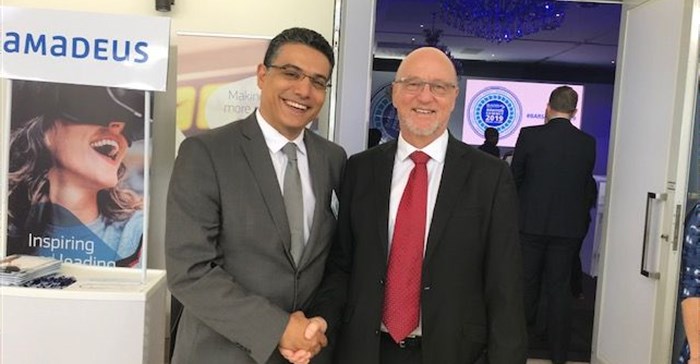
Subscribe & Follow
#AfricaMonth
Jobs
In the news
How an innovation hub could boost Africa's travel trade

"Aviation connects people and bridges cultural divides. But we need more collaboration among industry players. There is no use having the fastest aircraft when passengers are then stuck for hours at immigration," said Sindisiwe Chikunga, South African Deputy Transport Minister at this year’s Board of Airline Representatives of South Africa (BARSA) 2019 Aviation Summit.
Amadeus is already taking steps to foster collaboration across the South Africa travel and tourism industry, to contribute to transformational, economic growth in the country. A concrete example of this is the new National Tourism Visitor Information System program that Amadeus is jointly developing with key stakeholders in the public and private sectors of the travel and tourism industry in South Africa.
Collaboration and innovation are part of Amadeus’ history. Maher Koubaa, Amadeus Executive Vice President Airlines Middle East and Africa, said Amadeus was created just more than 30 years ago by a group of European airlines, which got together to form a travel platform.
"The [airline] industry created an entire ecosystem that generated thousands of jobs," said Koubaa. And, he maintained, it was done with the traveller in mind, to make the traveller’s journey more seamless. "That culture of innovation and collaboration is in Amadeus’ DNA. We continue to work with all stakeholders in the travel industry to continue to innovate, collaborate and add value to their business and operations."
Amadeus is currently using its own research and data to understand different travel customer profiles better. "We focus on the customer of our customer. We look at data and make it actionable in such a way that different suppliers (airlines, airports, TMCs, car rental companies) can consume [the numbers] and customise and personalise their offers and service," said Koubaa.
Delegates agreed they needed to keep the customer at the heart of any new development.
Vivek Wadhera, innovation speaker at this year's summit, urged: "It is important to empathise with your end user. Don’t think for them; think like them. Walk a mile in their shoes."
Suppliers can better manage the customer’s end-to-end journey by looking at reliable data. "Many times, the traveller needs personalised service when disruption happens, and not necessarily during the good times. That’s important to keep in mind," said Koubaa. "It’s at this time, that airlines need to make data actionable and in real-time. What the travel industry needs is a data whisperer."
Koubaa said NDC was a prime example of industry co-operation at work.
NDC is enabling industry growth as airlines have the opportunity to generate more revenue through product differentiation and development, he explained. Previously, customers could only shop for air tickets based on flights, fare and schedule. Today, airlines can offer more choice and, thereby, a better customer experience.
Blockchain is another significant development. "Blockchain could even be used to facilitate e-visas,” suggested Maher, "as long as the industry works together and is ready to share information."
"We live in a smart world with smart cars, homes and phones. To propel this industry forward, we have to start to think smarter," added Liezl Gericke, Virgin Atlantic Head of Middle East and Africa. "We can only achieve success if we work together."
South African Tourism Chief Executive Officer, Sisa Ntshona concluded: "Change is not optional, it is about survival. What brought you success previously will not necessarily bring you success going forward. Move. Things are changing."











